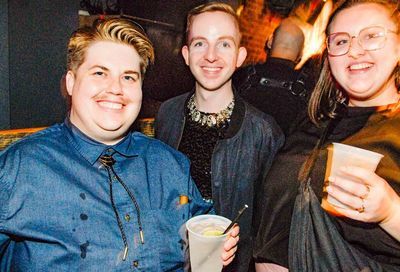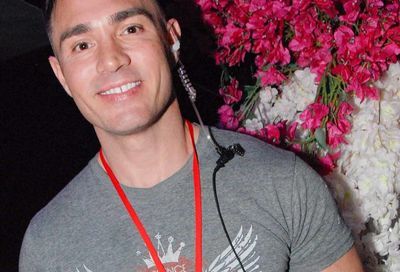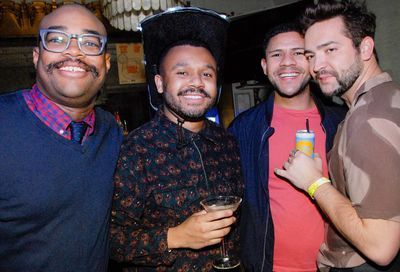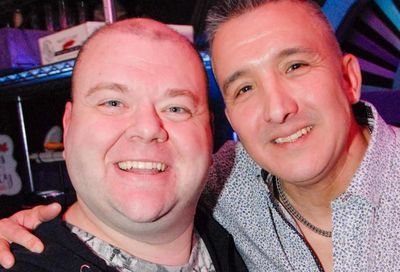Seniors in the Spotlight
LGBT aging is not a news trend, it is what we are living every day
It’s been another big news week for LGBT aging. An Associated Press story released Monday on coming out late in life; the SAGE/Movement Advancement Project report entitled “Improving the Lives of Lesbian, Gay, Bisexual and Transgender (LGBT) Older Adults”; and a significant LGBT presence at the National Council on Aging/American Society on Aging’s annual conference — the largest conference of aging professionals and policymakers in the country.
There’s a reason for this attention. Our nation is aging, and the LGBT community is aging along with it. The National Gay and Lesbian Task Force estimates that between now and the height of the aging boom, there will be between 2 and 7 million LGBT older adults in the United States. In addition, LGBT adults are increasingly taking on caregiving for our aging parents. However, our community remains woefully ignorant and unprepared for what this aging boom will mean for us. Other than forays into market-rate retirement communities, horrific stories about nursing homes, or trotting out the couple that’s been together for 40 years for a photo op, the LGBT community has only recently started to explore what types of services, programs and advocacy needs to be done to ensure the safety and independence of our older adults.
Some of this lack of preparation can be attributed to societal stigma about aging and how it intersects with sexual orientation and gender. Our culture tends to define LGBT people by the ways we are thought to express ourselves sexually. At the same time, our culture believes that “old” means “not sexual.” Both of these definitions are limiting and inaccurate.
However, this image persists, and it has a terrible impact on older LGBT people. In the non-LGBT aging community, our LGBT elders become invisible every time someone assumes that asking about their lives means asking solely about their sex life — and therefore never asks. In the LGBT community, our LGBT elders remain invisible as we plan our activities without taking older people into consideration — or worse, when we deliberately exclude them.
We need to educate ourselves, even as we push to educate the mainstream aging services network. SAGE (Services & Advocacy for GLBT Elders) is leading this effort at the national and local level. Earlier this year, SAGE was awarded the first-ever grant from the Administration on Aging to create a National Technical Assistance Resource Center on LGBT Aging. The resource center will provide training to aging service providers and LGBT agencies nationwide, and will offer critically important educational tools to LGBT older people.
Locally, that work is underway with the newest SAGE affiliate, located at The Center, D.C.’s LGBT community center. SAGE Metro DC, evolving from the Elder Think Tank, has been a long-term goal for this thoughtful group of older adults. Members of SAGE Metro DC have testified in front of the D.C. Office on Aging to advocate for funding for the LGBT community, met with elected officials regarding LGBT equality, collaborated on programs addressing HIV and aging, and built a listserv to share information and resources. SAGE Metro DC is representative of the passion and commitment we find among older LGBT adults throughout the SAGE affiliates network.
SAGE Metro DC is the result of commitment and passion that many of our LGBT organizations are seeking to access. However, it is only fair that our LGBT organizations provide something to our elders in return. When we fight to enforce nondiscrimination legislation, we need to enforce it in senior centers as well as workplaces. When we build health promotion opportunities, we need to include the health needs of older clients. When we create safe spaces for youth, we need also to consider the accessibility issues of older people.
LGBT aging is not a news trend; it is what we are living every day. Let’s not hide from it. Instead, armed with increasing visibility, data and advocacy, let’s ensure that our movement reflects the entirety of our lives.
Karen Taylor is the Director of Community-Based Advocacy and Capacity Building at SAGE. She is responsible for overseeing the development of SAGE affiliates and facilitates the National LGBT Aging Roundtable.
Support Metro Weekly’s Journalism
These are challenging times for news organizations. And yet it’s crucial we stay active and provide vital resources and information to both our local readers and the world. So won’t you please take a moment and consider supporting Metro Weekly with a membership? For as little as $5 a month, you can help ensure Metro Weekly magazine and MetroWeekly.com remain free, viable resources as we provide the best, most diverse, culturally-resonant LGBTQ coverage in both the D.C. region and around the world. Memberships come with exclusive perks and discounts, your own personal digital delivery of each week’s magazine (and an archive), access to our Member's Lounge when it launches this fall, and exclusive members-only items like Metro Weekly Membership Mugs and Tote Bags! Check out all our membership levels here and please join us today!




















